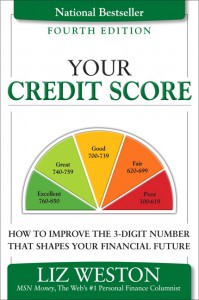 The Consumer Financial Protection Bureau today called on major credit card issuers to provide free scores to their customers on their statements or online. The regulator’s idea is that low scores could tip people off to problems in their credit reports–problems they might not otherwise find, since too few people get their free credit reports each year.
The Consumer Financial Protection Bureau today called on major credit card issuers to provide free scores to their customers on their statements or online. The regulator’s idea is that low scores could tip people off to problems in their credit reports–problems they might not otherwise find, since too few people get their free credit reports each year.
Creditors use a variety of scores to evaluate and monitor their customers–scores that measure everything from the likelihood of default to the likelihood the user will stop using the card. It’s the score that measures the likelihood of default that the regulators want customers to see.
I believe you should be able to see any score that’s used to evaluate you, and that you shouldn’t have to pay for it. Getting scores from your credit card company could be a good start, assuming the companies aren’t allowed to sub in some “FAKO” score that no one actually uses.
The problem comes in the execution. Seeing their scores is likely to make a lot of people upset, and not just the folks with low scores. People with high scores usually want to know why their scores aren’t even higher. Credit card companies may not want to mess with having to explain how scores work or take the heat for a process they don’t control. (Credit scoring formulas are created by other companies, like FICO-creators Fair Isaac, and applied to data held by the credit bureaus.)
We’ll have to stay tuned to see if any major issuers bite. In the meantime, you can get free scores from sites like Credit.com and Credit Karma, although they aren’t the FICO scores most lenders use. For those, you’ll need to go to MyFico.com and pay.
